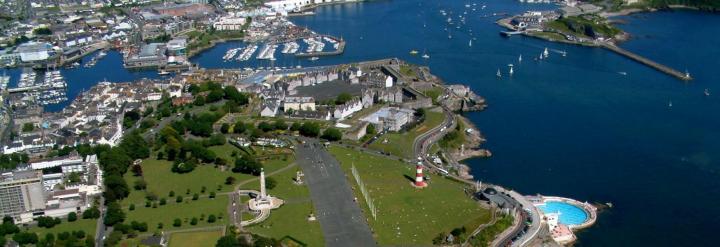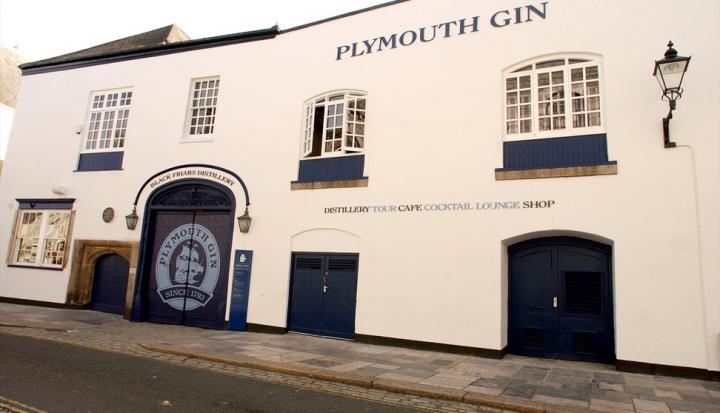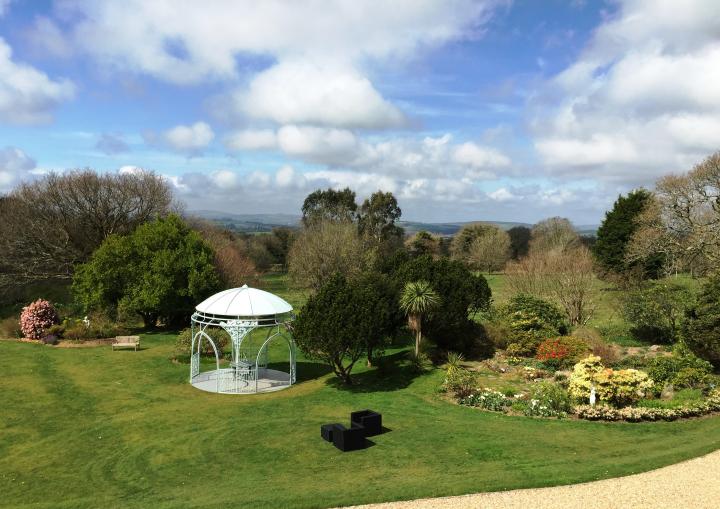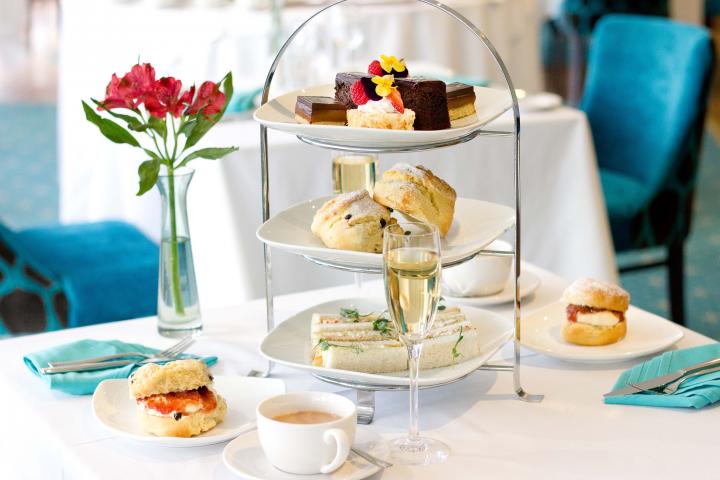Menu
"The original and best family travel website"
Fiona Webster finds a wealth of wonderful places to visit around the biggest city in Devon.

Plymouth is famous for its gin and British Navy yard, but if you take a trip down to this beautiful part of south Devon you’ll find there’s a lot more to it than that.
Of course it is rich in history - Plymouth Hoe, a grassy knoll in the centre with views across the Sound, is where Sir Francis Drake finished his game of bowls before heading out to defeat the Spanish Armada in 1588. A few metres away are the Mayflower Steps where the Pilgrim Fathers set sail for the New World in 1620.
Across the Sound are the Barbican and Sutton Harbour, with over 200 listed buildings, mostly Tudor and Jacobean, set in cobbled streets. Today they are home to the National Marine Aquarium, the Plymouth Fisheries fish market and numerous coffee shops.
Plymouth’s bars and restaurants give the city a lively feel. There’s locally caught fish of course, but also Italian, Greek, Japanese, Turkish, Thai, Indian and Mexican cuisine on offer. The shops are an eclectic mix of locally made wares and some quirky designers from the region.

The Plymouth Gin Distillery, the oldest distillery in England, is worth a visit. At the friendly visitor centre they will tell you about their famous drink or you can take a tour. The basic tour is £7, the Gin Connoisseur’s Tour is £20 or the Master Distillers Tour is £40, it’s advisable to book the latter two. Our basic tour was fascinating and soon we knew all about gin – and how to make it. We were then invited for a free drink – gin of course - at the distillery’s historic bar.
Beyond the city it is a short hop to Dartmoor National park, boasting 368 square miles of rugged open countryside - roughly the size of London or 20,000 football pitches, if you can picture that. If you’re feeling energetic, climb to the highest point on Dartmoor - High Willhays Tor - which is 2,039 feet above sea level. Tors are rocky mounds made of granite which formed 295 million years ago. Walking across these open moors on a windswept day, without another human in sight certainly feels more Jurassic Park than 21st century England.
Dartmoor is mostly used for farming and there are around 50,000 cows, sheep and ponies kept on the open land. Approach with caution though, these animals don’t like being petted and if they’re with their young they will give you a very angry glare!
If you head across the moors you’ll be met with the chilling sight of Dartmoor prison, known as HMP Princetown, which dates back to 1809 and is still a working prison. At the prison museum we discovered prisoners did actually wear suits with arrows and broke rocks in chain gangs on the moors. The curator told us about their famous inmates, including Acid Bath murderer John George Haigh, great train robber Ronnie Biggs, Kray gang rival Frankie Fraser and Kray victim Jack “the Hat” McVitie.
If you’re basing yourself around Plymouth there are plenty of hotels and BandBs on offer in the city and nearby. We stayed at the Moorland Garden hotel which is well placed for sightseeing, and only a 15 minute drive from Plymouth.

The hotel is perched on the edge of Dartmoor National Park and you can walk out the front door and find Dartmoor ponies and sheep grazing on the verges. It is set in nine acres of lovingly tended gardens and boasts an AA Rosette. Each bedroom is differently designed with some fascinating antique furniture. Our room had an antique commode converted into a flower vase! The room was spacious, overlooking the gardens had a large, comfortable bed and a sofa area where we enjoyed afternoon tea.

The staff are friendly and efficient and the hotel welcomes dogs as long as you eat in the bar with your pooch. The Moorland Garden is known for its excellent local lamb (I found it difficult to look those wild sheep in the eye after our rack of lamb supper!) and in the summer you can eat on the terrace. The hotel has just launched a new seasonal menu, including crab tian with blood orange, charred corn and pea shoots and South West lamb rump with dauphinoise potato and wilted greens. It coincides with the launch of Visit Dartmoor’s Delicious Dartmoor campaign and Taste of Dartmoor map, which tell you how to find the finest fare in the region.
If you like peace and perfect horticulture, just a few miles from the Moorland Garden hotel, is Garden House. Originally a grand family home it is now run as a trust and tended by staff and local volunteers. Admission is £7.95 or £19 for a family of five. Wander around the many different themed gardens, buy some plants from the nursery or try the tearoom for home-made cakes and cream teas.
Other places worth visiting for Devon cream tea include the riverside tea garden and Watersmeet, Buckland Abbey’s s excellent Ox Yard restaurant and the Barn Café at Greenway.
If you like history and parks the National Trust is much in evidence in this part of Devon. Buckland Abbey or Saltram House ar worth a visit and further afield Castle Drogo, the last castle built in England, is an impressive stone fortress above the Teign Gorge, great for picnics.
We loved our stay around Plymouth and south Devon, would we go back? Definitely!
Contact Details:
The Moorland Garden Hotel, Yelverton, Plymouth, South Devon, PL20 6DA. Tel 01822 852 245 or see www.moorlandgardenhotel.co.uk. Current offer: one night’s dinner, bed and breakfast from £110 per room per night, including a complimentary mini Devon Cream Tea with homemade scones, jam and clotted cream and £25 per person towards dinner.
The Garden House, Buckland Monachorum, Yelverton PL20 7LQ. Tel 01822 854769 or see www.thegardenhouse.org.uk
Dartmoor Prison, Tavistock Rd, Princetown, Yelverton PL20 6RR. Tel: 01822 322000 or visit www.dartmoor-prison.co.uk
The Plymouth Gin Distillery Black Friars Distillery, 60 Southside Street, The Barbican, Plymouth PL1 2LQ. Tel 01752 665 292 or see www.plymouthgindistillery.com